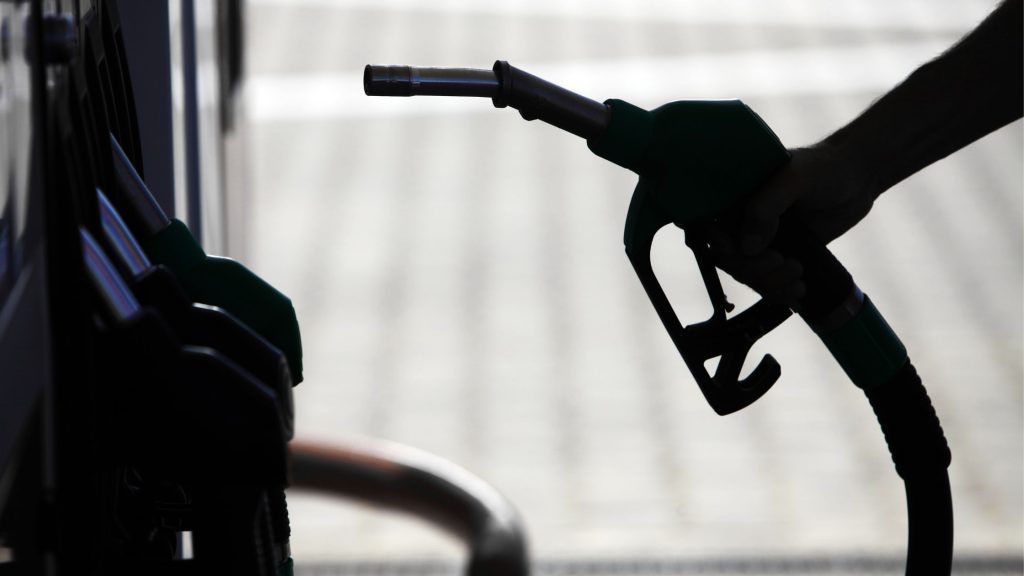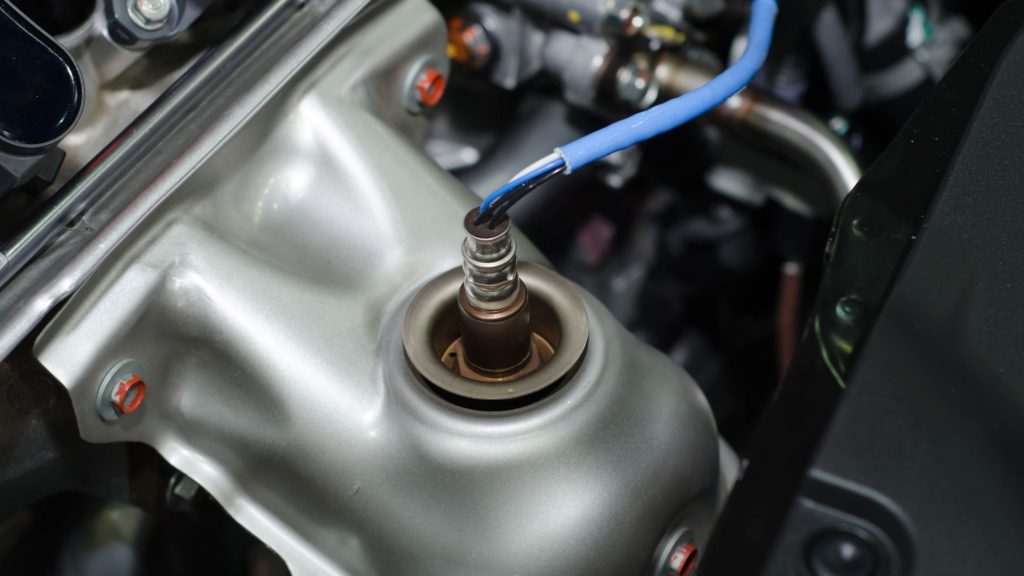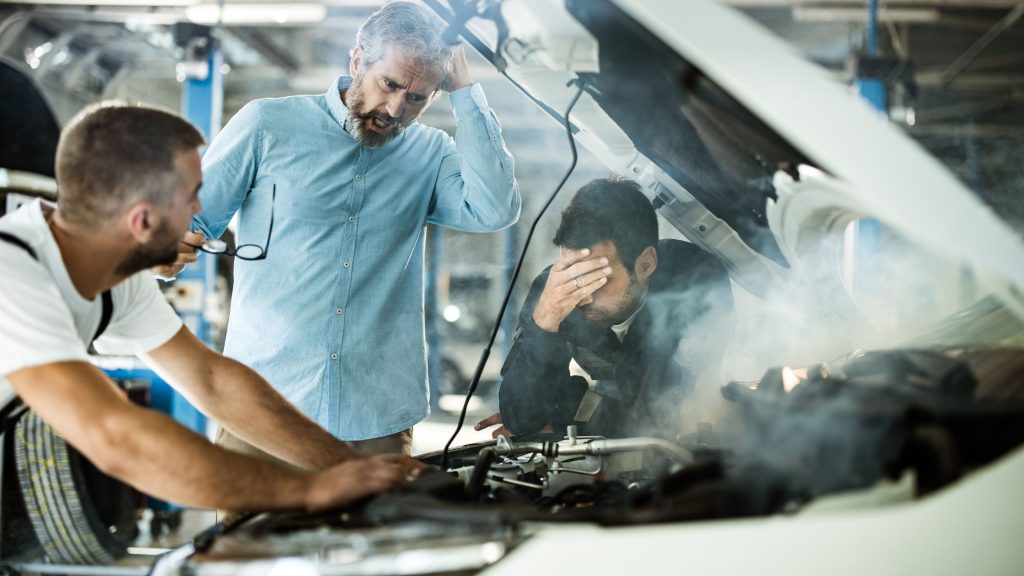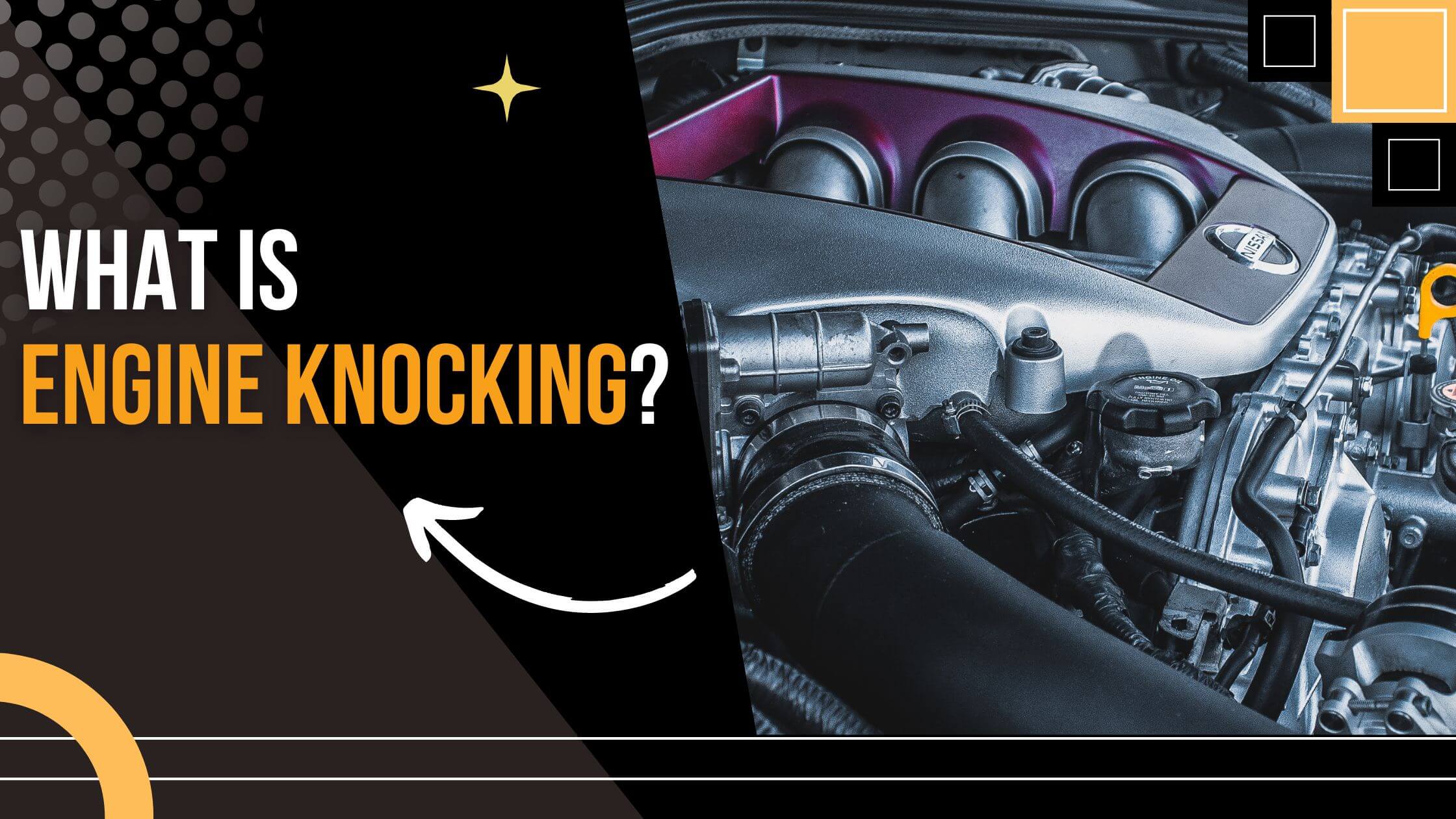In a research published in 2016, Australian consumer activist Choice found that two-thirds of all new car owners nationwide encountered problems with their vehicles during the first five years.
Even a seven-year-old knows that a car is used to travel from point A to point B. But have you ever paused to ask yourself, “How does it do that?” How does it move? Your car’s engine is what makes it happen. A variety of issues may accompany it. “Engine Knocking” is only one among the many.
What is Engine Knocking? Vehicles create strange noises if there is one thing that everybody can relate to. You might even hear a clunk, a squeal, a rumbling, or a roar. If the sound is more like a “knock,” you may be confronted with problems beneath the hood. These issues, if left unaddressed, might cause engine damage in the long run. When your car’s engine knocks, it makes pinging, knocking, or slamming sounds. It triggers the spontaneous combustion of an air-fuel combination, which may be exceedingly unpleasant and dangerous. As a result, knowing how to check for engine knock is critical so that you can solve the problem as soon as possible.
Let us understand more about engine knocking and the causes behind it.
What Is Engine Knocking?
Engine knocking occurs when the gasoline burns unevenly and the shocks activate at the wrong moment. After every pocket burn, it produces a little shock, which ignites the next pocket & the cycle continues.
When gasoline burns incorrectly in your engine’s cylinders, it causes knocking. The engine knocking sound is a pinging, tapping sound that gradually increases in volume as you speed up. Fuel burns in regulated pockets, rather than all at once when cylinders are appropriately balanced in air and fuel.
This fuel-air charge is only supposed to be sparked by the plug at a specific moment in the piston’s strokes. You must note that knocking is not the same as pre-ignition; they are two distinct phenomena. Pre-ignition might be preceded by knocking. On the other hand, knocking happens when the combustion process’s peak no longer occurs at the optimal time for the four-stroke cycle. Going further, let us discuss the causes of engine pinging sound or engine knocking.
Why Does An Engine Make Knocking Sound?
 Knocking occurs when the gasoline in the cylinders ignites early. This early ignition interrupts the motor’s smooth spinning. The accidentally fired piston then exerts a rearward push to the shaft against the engine’s motion, resulting in the knock and ping you hear and a tiny pause that results in a loss of performance. Engine knocking can cause damage to the piston head, cylinder walls, or shaft bearings, which are all costly to replace.
Knocking occurs when the gasoline in the cylinders ignites early. This early ignition interrupts the motor’s smooth spinning. The accidentally fired piston then exerts a rearward push to the shaft against the engine’s motion, resulting in the knock and ping you hear and a tiny pause that results in a loss of performance. Engine knocking can cause damage to the piston head, cylinder walls, or shaft bearings, which are all costly to replace.
Digital computer injection systems may modify your fuel-air mixture to avoid knocking, but this comes at the expense of engine efficiency. In this situation, decreased fuel economy indicates that the vehicle needs care.
6 Major Causes Of Engine Knocking

One of the most typical causes of engine knocking while accelerating is that you are using the incorrect gasoline or fuel with a poor octane rating. Either you refilled the wrong sort of petrol the last time you went to the petrol station, or the gas station had the wrong fuel in its tank. Spontaneous combustion may occur if you use energy with such a low octane rating in your fuel tank. The engine will knock as a result of this.
If the problem arose after you refilled the gas tank, you might use an octane enhancer to enhance the octane slightly instead of replacing all the gasoline in the tank.

If you are still wondering what engine knocking is and what might be the common cause for it – it might be a faulty knock sensor. The knock sensor was explicitly created to avoid engine knocks. Your engine control constantly seeks the most modern ignition available for maximum performance. If you fill up your tank with low-octane fuel, the engine will need a delayed engine speed to run without a motor knock.
As a result, the engine knock sensors’ role is to check for knocks and, if it happens, to notify the engine to delay the ignition further to prevent engine damage. If this vehicle knock sensor fails, it might transmit incorrect indications to the engine’s control unit, resulting in an engine knock.
-
Incorrect Ignition Timing
When the ignition timing is too advanced, the engine will begin to knock or ping. As a result, improper ignition timing might result in an engine knock. Unfortunately, this only applies to older vehicles with flexible ignition timing on the distributor or perhaps an adjustable cam with a crankshaft position sensor. Because newer automobiles manage the ignition timing electronically. Hence, it is not feasible to modify the timing.
To check the timing on an older automobile with changeable ignition timing, you’ll need to have an ignition timing light. Try slightly delaying the timing to see if that helps with engine detonation. You should use the repair manual to determine the proper ignition timing.
Carbon deposits can be created using engine oil with a higher weight than the manufacturer recommends. It can also occur when you use low-quality fuel, use the engine at temperatures lower than typical, or are accustomed to making frequent short excursions. You should check each spark plug individually, and if you find filthy deposits surrounding their electrodes, it might be a sign of a carbon build-up on the valves & pistons. You may use a light to look into the spark gap if you don’t have an endoscopic camera.
Spark plugs supply the ignition charge for the fuel-air combination to ignite. It is uncommon for incorrect spark plugs to cause engine knock and detonation, but it can happen. However, there are several pins, and your engine may begin to make noise if you purchase the wrong type of plug.
The ignition is too weak in the first case, and the plug may not create any spark in the second. Check the repair manual for the correct pins for your automobile model, and ensure the accurate model is installed. Engine detonation is also responsible for the knocking sound.
-
Overheating Of The Engine

Engine overheating can cause aberrant combustion, and it’s also likely that a variety of factors cause overheating. Inspect the fluid level in addition to the radiator for clogs.
Test the engine’s air conditioning, and change the anti-freezing technique according to the manufacturer’s recommendations. You may utilize your vehicle’s service handbook to thoroughly inspect the system if you observe any overheating.
How To Fix Engine Knocking?
A high-performance engine requires high-quality gasoline. If your machine makes a knocking noise, you should know right away that the cure for engine knocking is quality fuel supply. Ensure that you use high-octane fuel to ensure the situation does not worsen. It ensures that the ignite is performed at the appropriate moment. To stop engine knocking, you may also apply the finest oil additive.
Another thing to consider when we witness the engine banging is spark plug issues. Depending on the kind and frequency of use, it produces banging noises. Experts recommend replacing them once the car has travelled 30 thousand kilometers.
-
Clean The Battery Terminals
A car making ticking noise could signal that the battery terminals need to be cleaned. Corrosion on the terminals can cause a loss of electrical contact, leading to many problems, including a loss of power and a clicking noise. The best way to clean battery terminals is with a solution of baking soda and water. Mix a teaspoon baking soda with a cup of water and use a cloth or brush to scrub the terminals. You may also visit a car service in Perth.
-
Replace The Crank And The Bearing
To resolve engine banging, the crank & bearing must be replaced. It is only sometimes essential, but you should get it examined because these replacements are time-consuming and would require skilled mechanics in Perth for the job.
-
Examine The Engine Temperature
Another issue that causes engine knocking is engine overheating. So, if everything else appears to be in order, this might be the issue that needs your attention. Firstly, you might begin by inspecting the electric fans.
For all the problems we recommend you to Visit SAI Auto Care. We are one of the most renowned car service station in Perth with one of the most skilled and experienced professionals.
Conclusion
If your car is making a knocking noise, you should get it checked by a mechanic as soon as possible. A mechanic can diagnose the problem and let you know what needs to be done to fix it. Engine knocking can be caused by several factors, including a build-up of carbon deposits, low oil levels, or a piston problem. While some of these causes can be fixed quickly, others may require more extensive repairs. No matter the reason, getting your car checked by a professional is the best way to ensure that your engine runs smoothly and safely.

